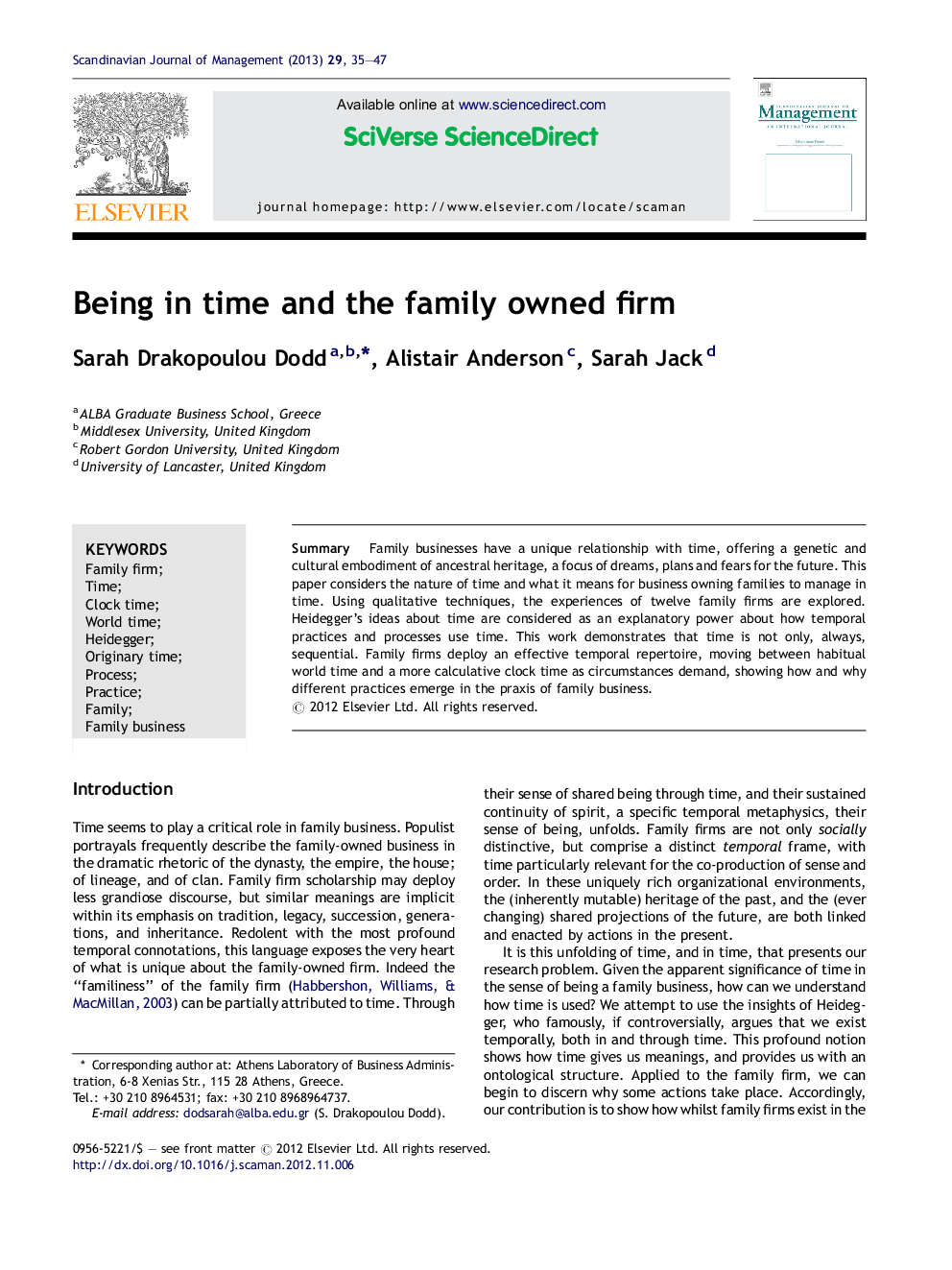| Article ID | Journal | Published Year | Pages | File Type |
|---|---|---|---|---|
| 895914 | Scandinavian Journal of Management | 2013 | 13 Pages |
SummaryFamily businesses have a unique relationship with time, offering a genetic and cultural embodiment of ancestral heritage, a focus of dreams, plans and fears for the future. This paper considers the nature of time and what it means for business owning families to manage in time. Using qualitative techniques, the experiences of twelve family firms are explored. Heidegger's ideas about time are considered as an explanatory power about how temporal practices and processes use time. This work demonstrates that time is not only, always, sequential. Family firms deploy an effective temporal repertoire, moving between habitual world time and a more calculative clock time as circumstances demand, showing how and why different practices emerge in the praxis of family business.
► This paper considers the nature of time and what it means for business owning families to manage in time. ► Using qualitative techniques, the experiences of twelve family firms are explored. ► Heidegger's ideas about time are considered as an explanation of how temporal practices and processes use time which is not only, always, sequential. ► Family firms deploy an effective temporal repertoire moving between habitual world time and a more calculative clock time as circumstances demand. ► We show how and why different temporal practices emerge in the praxis of family business.
